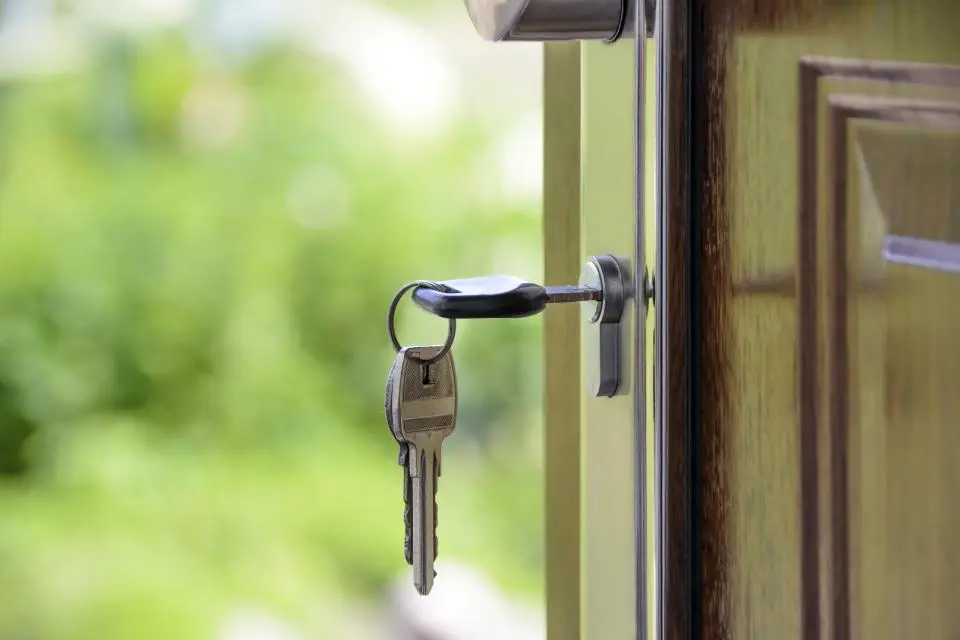The start of residency is a huge transition. Specifically, thousands of newly-minted doctors prepare to move around the country to start their residency training programs. Most medical students spent their time in medical school renting apartments. So the transition to residency often brings up an important question: Should you continue to rent or should you buy a house before residency? Unfortunately, there isn’t any teaching in medical school about how to position yourself to buy a house before residency (or at any point for that matter). More than that, owning a home is expensive and the average medical student in the US is graduating with $190k in student loans. Even worse, most medical students graduate with minimal, if any, savings.
I fall into the category of a recent medical school grad. By God’s grace, I recently purchased a condominium in Philadelphia, and I could not be more excited about my new home!!! I spent some time running the numbers to ensure that buying would be better for me than renting in the short and long term. Whenever I told friends that I was in the process of purchasing a home, they often asked how I was able to do so since I’ve been a student for the vast majority of my life. Thus, I’m writing this post to share some tidbits on how you, as a medical student, can position yourself to buy a house before residency.
DOS OF BUYING A HOUSE BEFORE RESIDENCY
DO SAVE FOR A DOWNPAYMENT AND CLOSING COSTS
This might seem overly obvious, but in order to buy a home, you need a decent amount of money for upfront costs as well as reserves for any issues that pop up. I already mentioned that most medical students graduate with a lot of debt and no savings. So, you might be wondering, how on earth can I save money for a downpayment while I’m in medical school? I’d say that this point is probably the most important point for me which allowed me to even think about buying a home. Thus, I’ll address this point first.
Without going into too many details about my personal finances, I’ll give the following real talk insight as to how I saved to contribute a sizeable portion** of the downpayment on my home:
1. I worked all throughout medical school and business school
From basically my first day of medical school through my graduation day, I worked in some form or the other while in school. Through tutoring and admissions coaching, my interior decor work, and consulting gigs, I earned a modest wage that also allowed me the freedom to save.
2. I saved the majority of the money that I earned while in school
Don’t let all the travel posts on my Instagram fool you. I am CHEAP! Ask my family or friends, I’m probably one of the most frugal people to ever exist. When I travel, it’s usually for free because I’ve applied for funding through school, or it’s on the low low because I found a flight deal and stayed in a hostel or with friends. New clothes? ALWAYS on sale. What even is full price? Eating out? Nah, let’s meet up at the gym or go on a walk. All that to say, I was able to save up for a downpayment because I invested and kept my money in my “high” interest savings account rather than spend it on things that I didn’t need.
**I did not pay for everything on my own. Keep reading to learn more!
Exactly how much do you need to save?
Depending on the salary at your residency program and your other debts, a single resident could potentially afford a home between $200-300k. A couple could afford even more. When borrowing via Federal Housing Administration (FHA) loans and even conventional loans, your downpayment can be as low as 3.5 – 5% of the purchase price, and your closing costs will typically run you about that same amount. Moreover, there are doctors’ loans that allow you to buy a home with little to no downpayment, but closing costs still apply. So on the conservative side, you’d need to have access to at least $15-20k to even consider purchasing a home, but the more funds you have available, the more options you’ll have when it comes to which property you purchase and how expensive the mortgage financing will be. I say this because the less you put down on a home, the higher your interest rates and other additional costs like private mortgage insurance (PMI).
DO ACCEPT HELP
If you don’t have the funds to cover a downpayment or closing costs, all is not lost. Maybe your parents are able to help you with some of the downpayment or the closing costs. Maybe they can help you with all of it! I know for me, accepting help can be hard because I like to consider myself to be an independent person. Nonetheless, I would NOT have been able to purchase my new condo without the generous assistance of my parents. I mentioned that I saved a lot, but I did not have ALL the funds needed to avoid paying PMI and to cover closing costs. That’s where my parents came in.
I am not at all ashamed to say that I needed and accepted help for this purchase. On Twitter, I’ve ranted talked about the perpetuation of compounded privilege which allows some groups of people to prosper economically, whereas others continue to struggle. I have several medical school classmates whose parents flat out purchased homes for them to live in during medical school. (This is by no means shade or envy, because that’s awesome their parents did that. I just think know that some demographics are better positioned to give and receive help based on racist structures that are in place…but I digress). I’m just so thankful I accepted my parents’ help and even more grateful that my parents were willing to use their hard earned money to invest in me.
TLDR: It’s not bad to accept help from others if buying a home would help to set you up financially for the future.
DO DECIDE WHETHER BUYING A HOUSE BEFORE RESIDENCY IS THE RIGHT MOVE FOR YOU
Once you’re in a comfortable financial position to buy a home, you must then think about whether buying a home before residency is the best course of action. Deciding whether or not to buy a house before residency is honestly a very personal decision. To make this choice, you must think about the upfront costs needed to buy a home, the costs of home maintenance, the trends in the real estate market of your residency program, and much much more. This post isn’t about determining whether buying a house is right for you. Instead, this post covers what you should do to be able to buy a home before residency. Nonetheless, there are a lot of different resources out there that can help you decide if residency is the best time to invest in a home (e.gs. This post on White Coat Investor and this one on Nerd Wallet).
DO RESEARCH THE HOUSING MARKETS
Depending on the city your residency program is located in, buying a house before residency might not be feasible. For instance, if you’re going to residency in Los Angeles, New York, or San Fransisco, you probably couldn’t afford to buy a closet on a resident’s salary. On the other hand, if you’ll be in a more affordable area like Durham, Nashville or even Philadelphia, homeownership may be within reach.
On my residency interview trail, I researched the housing market in every city that I interviewed in. I quickly learned that in some cities (cough cough Palo Alto), I couldn’t even afford to rent. Whereas cities like Miami, Durham, and Nashville surprised me by how affordable it could be to purchase a house or condominium. In many instances, the cost of renting and buying equalized for me over the four years that I would be in my psychiatry residency. In the buying scenario, however, my monthly payments would go toward building equity, whereas rent payments would vanish.
DO CONSIDER BUYING A HOME THAT CAN BRING IN ADDITIONAL INCOME
My only regret in the home buying process is the fact that I could not find 2-bedroom, 2-bathroom options in my price range. Having the flexibility to rent out a room, whether via Airbnb or long-term leases, increases your access to rental income. Rental income can help to offset the cost of a mortgage. In many cases, the amount that you can earn in monthly rental income can altogether pay for your mortgage! So instead of spending money every month on rent, you can actually live for free/cheap or even make money to supplement your residency salary if there are 3+ rooms.
DON’TS OF BUYING A HOUSE BEFORE RESIDENCY
DON’T RUSH A PURCHASE
For most people, there are only about three months between Match Day and the start of residency. This means that if you’re moving to a new city, or even if you’re staying in the same city, there isn’t a lot of time for you to look for and buy a new home. Shoot, there’s barely time for you to find a place to rent. Keep in mind that closing on a home typically will take about a month from the time a seller accepts an offer to the time you sign the dotted line and have the keys in hand. This leaves you really only about a month or two to look for a place, which I learned was A LOT of pressure. I made some mistakes along the way because I tried to rush the process, so my recommendation to you is to take your time when buying a home. It’s a huge investment after all.
DON’T ASSUME THAT BUYING IS BETTER THAN RENTING
As I mentioned above, the decision to rent vs. buy isn’t cut and dry. Depending on the location and duration of your residency program, there might be instances where renting is actually the best option for you. I can’t stress enough how important it will be to seriously consider the pros and cons for you in deciding whether or not to buy a home before residency.
DON’T OVERBURDEN YOURSELF WITH DEBT
If you have a car, $100,000s of student loans, and little savings, it’s honestly probably not the best time for you to buy a home. Homeownership can quickly become a financial stressor on its own. So if you’re already going to be living paycheck to paycheck in residency, think again about whether you’re actually financially ready to own a home. Again, there’s no reason to rush this major life milestone.
**************************
One important point to remember: If you’re reading this and you weren’t able to purchase a home before residency, it’s not too late! If you’re doing a longer residency or you’re relatively certain that you want to stay in the same city after residency, it’s still possible for you to buy a home while in residency. In that case, all of these tips about how to position yourself to buy a house still apply to you as a current resident!
What are your thoughts? Have you bought a home before or during residency? Why or why not? Leave a comment below!
Peace and blessings,
Atasha Jordan, MD, MBA






